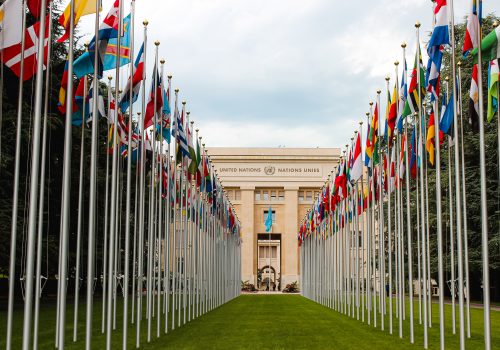A bipolar world
A Bipolar World is where Sino-US competition edges out any possibility of cooperation—not just on data and AI. Countries in Europe and Asia are forced to choose between Washington and Beijing while desperately trying to develop their own digital sovereignty. The United States announces publicly, as well as behind closed doors, that the adoption of Chinese 5G by other countries means a loss not only of US intelligence assistance but also potentially economic or security partnerships. European, Japanese, South Korean, Middle Eastern, and Indian tech firms are further threatened with (secondary) sanctions if they do not end their collaboration with Chinese and Russian counterparts. For economic reasons, Southeast Asian countries refuse US strictures and lean more towards Beijing, while the EU tries to push back but has mixed success in protecting its businesses from US punitive measures. As the Gulf countries now export the bulk of their oil to East Asia, they are also pushing back against Washington, despite their reliance on US security protection. A Biden administration continues the United States’ decoupling efforts and tries to isolate China on the global stage—the consequence of which is an intensification of great power competition.
The PRC boosts its tech and other assistance to Belt-and- Road countries, and most remain loyal to Beijing. Others want to be neutral and stay out of the Sino-US fight, but risk falling behind technologically if they cannot get tech assistance from either the United States or China. The free flow of knowledge is hampered by new firewalls erected not only by the PRC but also by the United States. Amongst growing security concerns, Chinese students are pushed out of Western universities and innovation slows down globally. AI development becomes more focused on military uses and quantum, and each side vows to be first. Multilateral institutions lose even more power, and a sophisticated tech reform remains a distant hope in a divided world. De-globalization is the new normal and the likelihood of conflict increases significantly over time.
The full text of this report is split across a collection of articles to give readers the opportunity to browse in any order. To return to the main page click here.

The GeoTech Center champions positive paths forward that societies can pursue to ensure new technologies and data empower people, prosperity, and peace.

